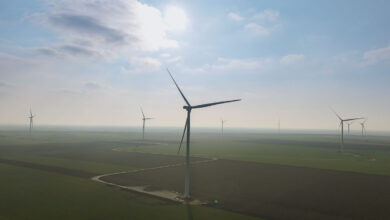EU 2030 energy targets
The European Parliament approved, on January 17th, the Directive on the promotion of renewable energy sources. According to the legislation adopted by MEPs, member states have to reach a target of 35% of energy coming from renewable sources by 2030. Increased energy consumption from renewable sources along with energy savings and increased energy efficiency represent an essential part of the package of measures needed for reducing emissions of greenhouse gases. This is in line with the commitment made by the European Union under the 2015 Paris Agreement on climate change and the need to achieve zero emissions by 2050.
The solutions highlighted by MEPs include reducing energy consumption, technological improvement, the extension of public transport, the use of high energy efficiency technologies and the promotion of the use of renewable energy in electricity generation, heating and cooling of buildings, as well as in the transport sector. These measures, together with energy efficiency measures, lead to a significant reduction in emissions of greenhouse gases, and also to a reduction in the EU’s energy dependency.
Energy efficiency, at least 35%
Improving energy efficiency can reduce CO2 emissions and the EU’s annual bill of EUR 350 billion for energy imports. That is why the European Parliament has set a mandatory target of reducing energy consumption in the EU by 35% by 2030. An important area where improvements can be made is the heating and cooling of buildings, accounting for 40% of all energy consumed in the EU, with around 75% of these buildings being energy-inefficient. At the end of last year, the Parliament, the Council and the European Commission decided that EU Member States should prepare long-term national strategies to support the renovation of residential and non-residential buildings. The goal is that by 2050, buildings in the EU will no longer lead to greenhouse gas emissions. The European Parliament has recently simplified energy labels for household appliances, such as lamps, TVs and vacuum cleaners to help the consumer compare their energy efficiency. It also envisages the establishment of a cooperation and control mechanism to monitor the progress made towards achieving the EU’s energy and climate change targets by 2030, especially in terms of energy efficiency and renewable energy.
Also, MEPs have decided that, by 2030, 35% of Europe’s energy consumption must be from renewable sources. Each EU member state will be able to set its own targets to achieve this goal, the only condition imposed by Brussels being that states may deviate by a maximum of 10% from these targets under certain conditions.
Energy consumed in transport
In 2030, each Member State will have to ensure that 12% of the energy consumed in transport comes from renewable sources. The contribution of ‘first generation’ biofuels (from food and food plants) will have to be limited at the level of 2017 with a maximum of 7% in transport. MEPs also want to ban the use of palm oil starting with 2021. The share of advanced bio-fuels (which have a lower impact on land use than the food-based), renewable fuels for transport of non-biological origin, waste-based fuels and electricity from renewable sources should be at least 1.5% in 2021, and by 2030 to grow to 10%. By 2022, 90% of the filling stations on the trans-European roads must be equipped with recharge points for electric cars. As far as biomass is concerned, some restrictions will be introduced. The Community Parliament wants the support schemes for biomass-based renewable energy to be created so as to avoid unsustainable use of biomass for energy production if there are better uses, as carbon stored in wood could be released into the atmosphere by burning for heating.
Generated energy delivered into the network
The European Parliament has decided to give more importance to household energy producers, i.e. those who produce electricity for their own consumption with the help of renewable production systems, and that the surplus be sold into the power grid without any restrictions. Brussels will ask Member States to assess the existing barriers to achieving this endeavour and to eliminate them as soon as possible.
10-year national plans
In order to reach the Energy Union goals, each Member State must notify the European Commission by 1 January 2019 and then every ten years on its national energy and climate policy plans. The first plan should refer to the period 2021 – 2030, and the next should cover the next ten years. The Commission will assess integrated national plans and make recommendations or take remedial action if it is found that a Member State’s progress in this area is not sufficient or the actions taken are not enough.



